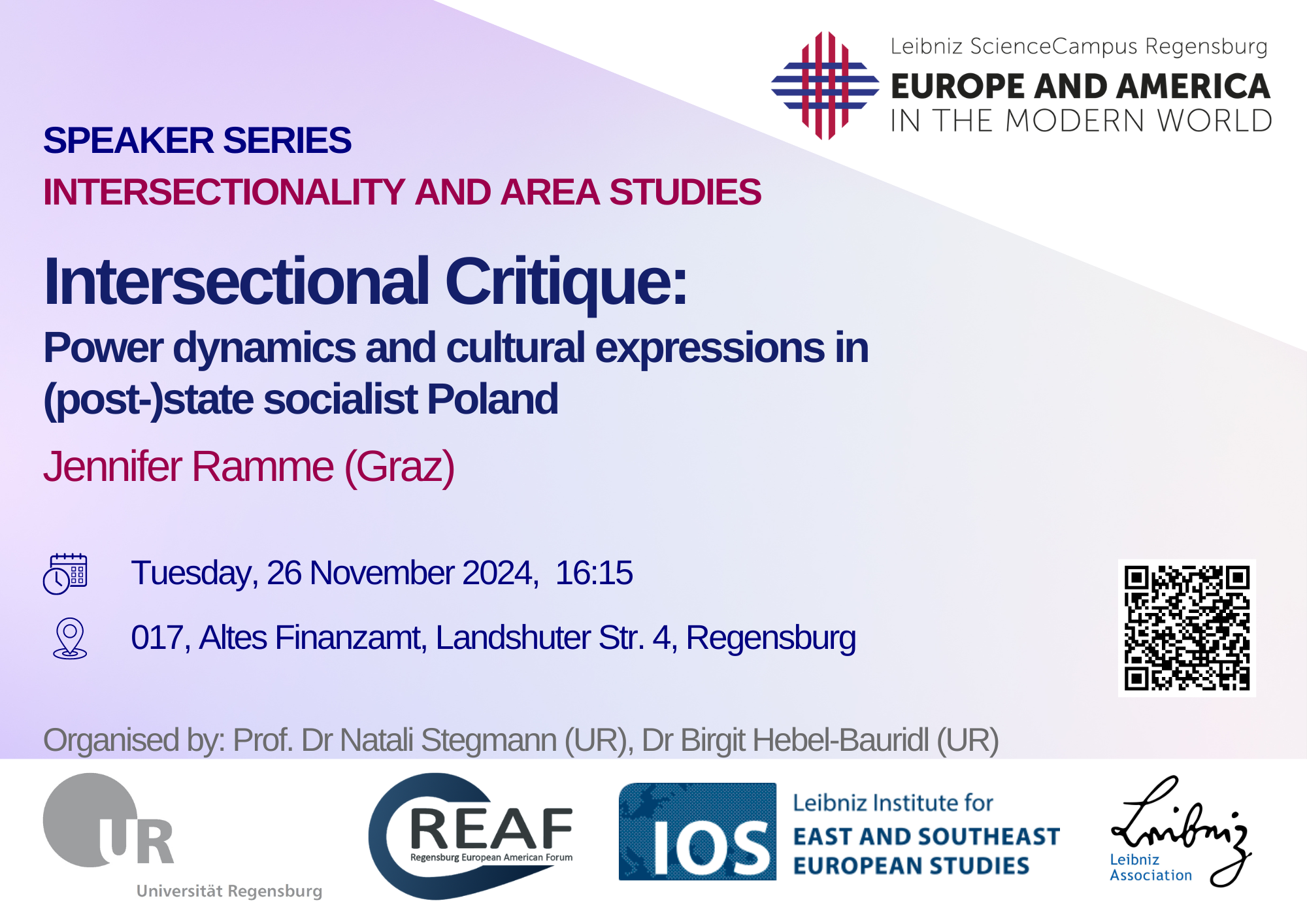Speaker Series | Jennifer Ramme (Graz) | Intersectional Critique
When? Tuesday, 26 November 2024, 16:15
Where? Room 017, Altes Finanzamt, Landshuter Str. 4
This talk is part of the series "Intersectionality and Area Studies", organised by Natali Stegmann, Professor of East and Central European History and Diversity and Equal Opportunity Officer of the Graduate School for East and Southeast European Studies at UR, and Birgit Hebel-Bauridl, Managing Director of the Regensburg European American Forum (REAF) at UR, both coordinators of the ScienceCampus Research Module Towards Multi-Polar and Multi-Scalar Area Studies. ),
Abstract:
Understanding the intersectionality as a critical analytical framework for analyzing power relations means to be sensitive to the specific historical context and social fabric. The workings of systems of oppression, dimensions of power and intersectional categories of analysis identified in one context cannot simply be transferred to another without reflection. In order to ensure analytical precision, it is therefore crucial to pay attention to the inequality relations at work in the respective context, the corresponding mechanisms of differentiation and also blank spots. While centering the category of gender, I discuss the field of research and possible intersectional dimensions of analysis of social movements and alternative music cultures in Poland. In doing so, I ask to what extent the (post-)state socialist context matters for how intersectional dimensions are expressed both within the framework of (dissident) movements and cultures, and in research about them. The talk will draw on preliminary findings from the MSCA project "Rebellious Youth Movements, Alternative Music Cultures and Intersectional Critique in (Post)-State Socialist Poland (1977–1995)" and its theoretical outline.
Bio:
Jennifer Ramme is a cultural scientist/sociologist who researches social movements, practices of cultures of dissent, and memory/archiving. Her postdoctoral project on 'Rebellious Youth Movements, Alternative Music Cultures and Intersectional Critique in (Post)State Socialist Poland (1977–1995)' (REBYOUTH – Grant agreement ID: 101152829) is being carried out at the Institute for Sociology at the University of Graz and the Museum of Modern Art in Warsaw. Her dissertation on 'Contested Polish and European Gender Orders' and the formation processes of feminist movements in Poland – to be published by transcript in 2025 – was written at the European University Viadrina / Collegium Polonium, where she also worked as a research assistant. In addition to her academic work, she is active in the fields of culture and education and documents social movements as part of the Social Unrest Archive.

